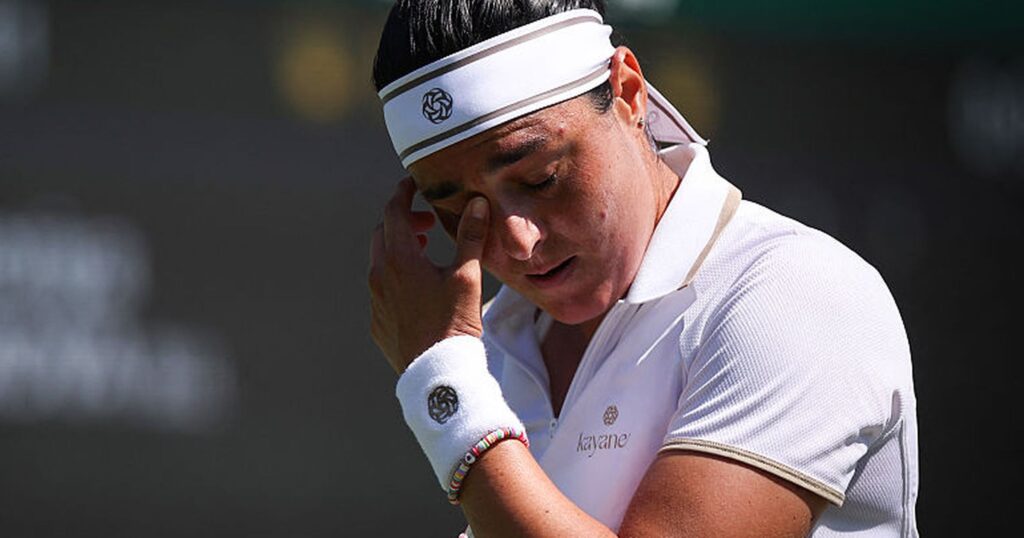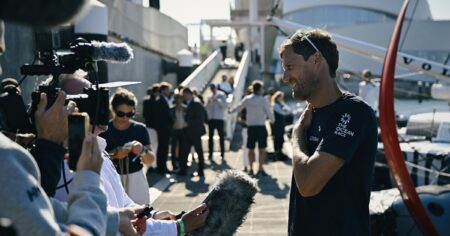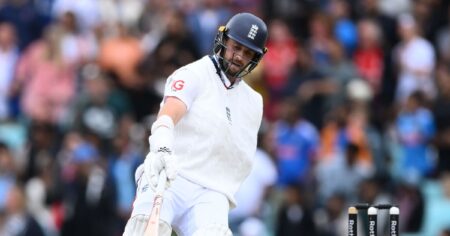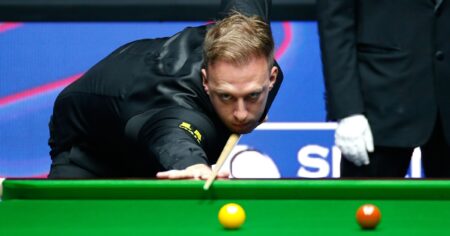In a heart-wrenching display of vulnerability, Ons Jabeur, the two-time Wimbledon finalist, faced a disappointing end to her campaign at the famed All England Club during the first round of the 2025 tournament. Competing against Viktoriya Tomova under the sweltering heat of London, the match took a tragic turn as Jabeur, visibly distraught, was forced to retire, marking another challenging chapter in what has been a grueling season for the Tunisian star.
The defining moment of the match came in a lengthy fifth game when Jabeur, grappling with her physical condition, called for a medical timeout. She was attended to on the court, where an ice pack was placed around her neck, and her blood pressure was monitored. These precautionary measures highlighted her struggle to cope with the demanding conditions and physical exertion. After a 14-minute break for treatment, she re-entered the match, displaying a commendable resilience as she fought back from a 4-2 deficit. Jabeur even managed to earn a set point in the opening set, showcasing glimpses of her competitive spirit. However, despite her efforts, she ultimately lost the set in a tense tiebreaker before making the difficult decision to retire while trailing at 7-6(5) and 2-0.
In her post-match comments, Jabeur expressed her sadness and frustration about her performance, stating, “I wasn’t expecting not to feel good. I have been practicing pretty well the last few days.” This situation reflects not just her individual struggle but also the broader challenges athletes frequently face in dealing with pressure and expectations. The emotional toll of such setbacks became apparent as she spoke about the impact on her confidence, highlighting how defeats can erode the mental strength that is so crucial in professional sports.
Jabeur’s résumé is impressive, boasting a place in the Wimbledon finals in both 2022 and 2023, as well as a place at the US Open final in 2022. However, the current year has not been as kind, as she has faced numerous health hurdles that have resulted in a disappointing plummet to No. 59 in the world rankings. This decline amplified the emotional weight Jabeur carried into her match—the high expectations set by her previous achievements now seemed daunting.
In an effort to navigate this tumultuous period, she reflected on the importance of mental readiness, stating that her biggest challenge was to be “mentally ready.” Jabeur elaborated that while physical challenges are an inherent part of sport, the mental aspect can often be the determining factor for performance. “It’s just about a lot of believing in myself more than ever because coming back at a certain level, it’s never easy,” she commented, voicing the struggles associated with regaining former glory.
Looking ahead, Jabeur indicated her intention to take a step back from the competitive circuit, emphasizing the need to disconnect from tennis and recharge her spirit. “Try to recover and spend time with the family. Hopefully, that can recharge me. Definitely rest is the word for it,” she noted, underscoring the vital role that mental health and personal well-being play in an athlete’s life.
As she plans her recovery, there’s a palpable hope that with rest and familial support, she can rediscover her confidence and on-court prowess. She expressed optimism that a few successful matches could reignite her self-belief and lead her back to the level of performance she aspires to achieve. Ultimately, the world of tennis remains hopeful for Jabeur’s return to form and success, with fans eagerly anticipating her future endeavors on the court.












